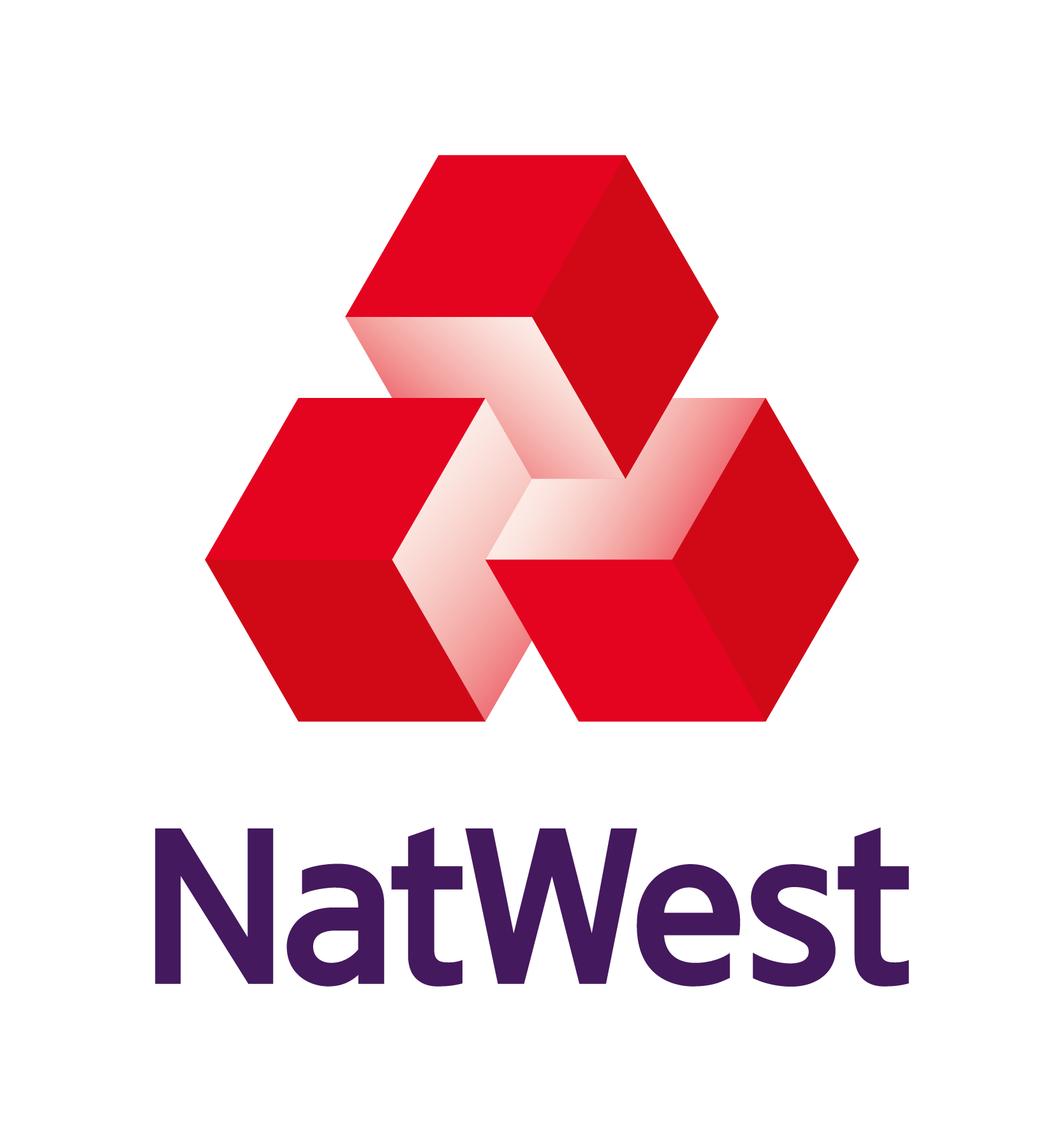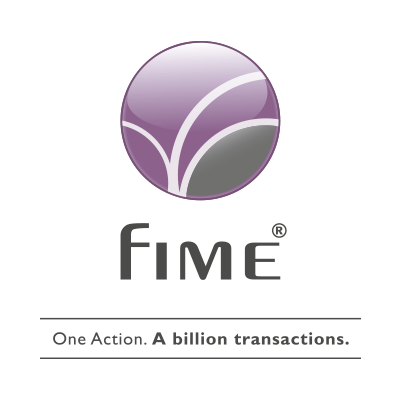Published
- 05:00 am

Murex, the global leader in trading, risk and processing solutions for capital markets, is pleased to announce that its flexible MX.3 platform can now be connected with the Bloomberg Market Data Feed (B-PIPE) hosted on AWS in a matter of minutes. This latest innovation will provide Murex customers, who also use B-PIPE, with easy and quick access to Bloomberg’s reliable market data to configure, test and run MX.3.
For hundreds of financial institutions, the MX.3 platform sits at the heart of a large IT ecosystem where high-quality market data is key. As data providers embrace the cloud and offer managed services, an essential part of the Murex cloud journey is expanding out-of-the-box connectivity so that clients can fully benefit from the latest innovations.
Bloomberg’s B-PIPE provides financial firms with global connectivity to consolidated, normalized market data in real time. B-PIPE gives the front office access to Bloomberg’s composite tickers and market indices along with market data for 35 million instruments across all asset classes, including data aggregated from more than 330 exchanges and 5,000 contributors.
Commenting on the availability of B-PIPE data to Murex customers, Arnaud de Chavagnac, Head of Cloud Marketing at Murex, says “We are delighted to be innovating with Bloomberg on the cloud. The ability to install MX.3 and plug it with the B-PIPE feed on the cloud will bring significant savings in terms of both time and resources to our customers around the world”.
"Cloud adoption in the front office is reaching a tipping point as applications require reliable, cost efficient access to data," adds Cory Albert, Global Head of Cloud Strategy for Bloomberg's Enterprise Data business. "With easier access to B-PIPE's quality market data on the cloud, Murex clients can focus on generating value from data rather than installing and managing dedicated infrastructure."
Related News
- 01:00 am

NatWest has today announced the launch of real time Faster Payments for its FCA regulated Financial Institutions customers, using API (Application Programming Interface) technology to allow customers to make and receive payments.
The clearing bank provides indirect clearing services to over 200 UK banks, building societies, credit unions and correspondent banks with UK sort codes, all of whom will now be able to make and receive payments in real time through the new service.
The bank offers Financial Institutions the option to connect to UK payment systems via its interfaces, instead of becoming direct members on the industry’s Faster Payments clearing scheme. This in turn allows smaller institutions, and banks who aren’t based in the UK, to benefit from the economies of scale and enable them to offer payment services to their own customers, saving time and cost.
Currently, most customers send payments via bulk files, which results in additional processing and delayed receipt of funds for ultimate beneficiaries. The new service enables customers to plug the secure API technology directly into their existing infrastructure, allowing them to take advantage of 24/7 instantaneous payments capabilities.
Martin Fiddaman, Head of Financial Institutions at NatWest, said: “Faster payments are an integral part of the service we offer our Financial institution customers – in the last 12 months alone we have helped these customers make payments totalling over £100bn, and as a bank we process £1 of every £4 sent in the UK. As a leader in this space we’re delighted to become the first major UK bank to allow payments to be made in real time via API, offering ease and convenience.’
Tim Tor, Head of Bankline Direct Product at NatWest, said: “Introducing cloud-hosted APIs is a logical step in our product evolution, and creates a great opportunity for our clients to gain efficiencies with their payment processing and reconciliation. We have built this solution following ISO20022 messaging standards, which puts us in a good position to respond to industry and regulatory changes.
Today’s announcement is the latest innovation from NatWest in the payments space; earlier this year the bank announced that it was to re-enter the merchant acquiring market when it launched NatWest Tyl, allowing SME customers to receive payments in-store and online.
Related News
- 06:00 am

Tribe Payments, a team of industry experts dedicated to delivering the future of payments, today announces its payments sandbox environment. Tribe’s sandbox is free-to-use and, in an industry first, provides access to APIs across both issuing and acquiring.
Issuers and acquirers must be able to handle speed – payments must be processed on time and scale – systems need to handle high and often fluctuating volumes – to perform well. For developers looking to launch a new card proposition or acquiring functionality, understanding how a product would perform in a live production environment is challenging. Furthermore, it is near-impossible for developers to experiment with back-end payment APIs to build new features and capabilities.
To address these challenges, Tribe’s sandbox allows banks, challengers and fintechs to explore, integrate and experiment with all of Tribe’s APIs. Developers can complete a technical integration that will reflect how the API would work when live. Once the developer is happy to move into production the service can be made “live” at the flick of a switch.
Tribe provides all aspects of payments using a modular platform to businesses – predominantly acquirers and issuers - that serve merchants and consumers across the globe. But the developer sandbox opens up the possibility of organisations and businesses outside of this core audience to experiment and develop new ways of using and offering payments.
“Nimble fintechs and fast-following incumbents need first mover advantage to win over innovation-hungry consumers and gain market share. This has led to a technology arms race, where payment providers are seeking the next “killer app” that will give them an unfair competitive advantage,” said Alex Kelly, VP of Product, Tribe Payments. “But developers at these firms are hamstrung by environments that don’t allow them to test and experiment quickly and easily. As the first sandbox offering free access to APIs across issuing and acquiring, we want to change that, as well provide a safe environment for non-traditional providers to develop services.”
Tribe Payments officially launched in June and is the first European issuer processor to be certified to allow banks to issue UnionPay International cards. Certification from Mastercard and Visa means that organisations that use Tribe’s technology can issue cards and process payments using the biggest card schemes in the world.
Related News
- 06:00 am

Today at Sibos 2019, Finastra has announced its partnership with Swiss Fintech, NetGuardians, which sees the two companies launching an AI-powered fraud detection solution for financial messaging. Tailored for Finastra’s SWIFT Service Bureau, the tool uses artificial intelligence and machine learning to identify fraudulent payments in real-time, stopping them before money leaves the bank or corporate organization.
Joel Winteregg, Co-Founder and CEO at NetGuardians said, “Fraud is a growing problem around the world and a big challenge for banks; and unfortunately, the SWIFT Network has found itself a target in recent years. With regulators urging banks to be more vigilant to this threat, we have built a tool that empowers banks to proactively prevent fraudulent activity before it can occur and keeps them one step ahead in the fight against financial crime. We are already seeing great success with our technology. Since January 2019 our customers have stopped more than $1 million USD in fraudulent payments. Now that we have integrated our tool with Finastra’s technology, this will only increase.”
Unlike other rules-based solutions, NetGuardians’ software uses a combination of AI and machine learning to proactively monitor for anomalies. It captures all network traffic and SWIFT MT 101, 103 and 202COV payments, analyzing unusual user activity to ultimately suspend suspected fraudulent transactions.
The tool’s algorithms continuously learn about the bank’s payment instruction patterns, allowing it to identify high-risk message anomalies without needing to configure any rules. As a result, customers benefit from rapid implementation, improved detection and prevention rates, as well as a significant decrease in false positives and time spent on fraud investigation. The solution helps banks conform to SWIFT’s mandatory Customer Security Program.
Riteesh Singh, Senior Vice President, Financial Messaging and Services at Finastra said, “The launch of our AI and machine learning based fraud detection solution marks an important step forward in helping banks tackle the challenge of financial crime. Integrated with Fusion Total Messaging, the solution enables banks and corporate organizations to protect their customer’s wealth and their own reputation, with fast and cost-effective implementation in Finastra’s Service Bureaus. Our work with NetGuardians is a shining example of how important collaboration is in today’s financial services landscape.”
Related News
- 01:00 am

FIME has been authorized by PayCert to evaluate payment solution implementations against the latest nexo standards Acquirer Protocol v6.0. This completes FIME’s end-to-end portfolio of nexo standards services. It can now support nexo standards implementations with training and consultancy services, right through to the testing and the certification processes.
The nexo standards Acquirer Protocol standardizes the communication between the POI device and the acquirer hosts. It is utilized by banks, merchants, device manufacturers and payments processors. The protocol helps stakeholders significantly reduce implementation and system management costs, and deliver seamless interoperability across borders.
“Adoption of nexo standards protocols has gathered significant momentum. For our goal to bring interoperability to the acceptance ecosystem to be successful and sustainable, testing is fundamental,” comments Claude Brun, Chairman at nexo standards. “International testing labs like FIME support the expansion of nexo standards, foster innovation and speed up deployment of quality implementations. But this is just the beginning – we’re committed to delivering testing support across all protocols and look forward to FIME’s continued support.”
“It’s an exciting and pivotal time for nexo standards,” comments Arnaud Crouzet, Vice President, Security and Consulting at FIME, “European retailers are driving adoption, pushing global acquirers and POI vendors to keep up. We’re committed to supporting all stakeholders with the industry’s most extensive nexo standards offering. We’re offering dedicated end-to-end support with training and business consultancy, through to testing and certification. As champions of payments innovation and standardization, we look forward to contributing to the continued success of nexo standards.”
To learn more about the importance of nexo standards and how FIME can help ensure a smooth migration project, see our blog “What is nexo standards?”, download our eBook or visit the FIME website.
Related News
- 03:00 am

Acknowledging the growing potential for future disruptions to critical business services that could create market instability, The Depository Trust & Clearing Corporation (DTCC), the premier market infrastructure for the global financial services industry, today called for establishing business resilience as an industry-wide priority in a new white paper, Resilience First.
In the paper, DTCC says a paradigm shift is required to protect the global financial system from the significant threats posed by cyber-attacks, the rapid development and adoption of new technologies, the increased interconnectedness of the financial ecosystem, and growing industry-wide concentration risks, among other dynamics. Business resilience refers to an organization’s ability to safeguard its critical services against the threat of potentially disruptive events, regardless of their nature or origin.
“With the threat of potential disruptions continuing to grow, firms can no longerafford to focus on disaster recovery, business continuity management and cybersecurity in isolation,” said Dan Thieke, Managing Director, Business Risk & Resilience Management. “Resilience initiatives should look holistically at threats and aim to safeguard critical business services against a wide range of technical, physical, logical or financial disruptions.”
In the paper, DTCC highlights the need for a holistic, forward-looking and highly collaborative approach to business resilience. Rather than solely focusing on individual processes, business resilience efforts should be broadened to include all relevant stakeholders, consider an end-to-end perspective across critical business services, incorporate resilience into the initial design of new products and services, and ensure full business ownership.
The paper also describes a set of core principles and supporting guidelines that can further resilience efforts. The principles and guidelines were developed for DTCC but can be adopted by a wide range of entities looking to make their critical business services even more robust.
To move forward, ongoing industry collaboration will be necessary to ensure readiness to mitigate the impact of technical, physical or logical disruptions to critical business services.
“We are committed to leveraging our experience to lead the discussion on the evolution of industry-wide resilience. This is a key strategic enabler that is consistent with our mission to deliver the world’s most resilient and secure post-trade infrastructure for our clients,” said Dan Thieke, Managing Director, Business Risk & Resilience Management.
Given the collaborative nature of the firm’s resilience initiatives, DTCC will be conducting a broad external outreach program to its clients and other key stakeholders to validate and refine its plans. The white paper is a key part of that engagement and is intended to foster further dialogue and discussion on this critical topic.
Related News
- 05:00 am

FICO® Falcon® X, announced today at the Finovate conference in New York, delivers groundbreaking AI and machine learning technology aimed at preventing new forms of fraud and financial crime that are enabled by the rapid adoption of real-time payments. Running on Amazon Web Services (AWS), FICO Falcon X streamlines both fraud detection and anti-money laundering processes — something banks and financial institutions worldwide are seeking. This convergence of capabilities represents a significant cost savings opportunity as FICO estimates an 80% overlap in the data processing, systems maintenance, and ongoing administration of legacy systems needed to support these functions independently.
More information: https://www.fico.com/en/products/falcon-x
“The worldwide rollout of real-time payments — including person-to-person transfers and mobile payments — has given rise to criminal threats that thrive on the fact that these payments are often irrevocable,” said Jason Keegan, who oversees the fraud line of business for FICO. “Criminals have exploited the rigid infrastructure that underpins our global financial system. This has allowed them to not only commit theft, but also finance drug trafficking, human smuggling, and terrorist activity. With Falcon X, we set out to help institutions detect and prevent criminal activity before the real-time transfer occurs.”
“Global regulators are encouraging financial institutions to evaluate new methods of detecting financial crimes,” said TJ Horan, FICO’s vice president of fraud and compliance products. “We’re bringing to bear the orchestration of purpose-built machine learning models, contextual data, and expert workflows, giving fraud and compliance teams unprecedented flexibility. We blended the latest analytic technologies with FICO’s payments and machine learning domain expertise to help banks strengthen their defenses, level the playing field, and quickly operationalise capabilities that not only satisfy regulatory requirements, but also detect the earliest indications of criminal intent.”
FICO® Financial Crimes Studio
As part of the FICO® Falcon® X solution, FICO is also introducing the FICO® Financial Crimes Studio with InstantML, which shortens the time to develop and deploy real-time financial crime models through purpose-built and domain-specific FICO machine learning algorithms. The FICO Financial Crimes Studio also allows data scientists to build models based on their banks’ unique customer portfolio using open source machine learning libraries such as R, Python, and H2O. Explainable AI tools in the Financial Crimes Studio aid model governance by providing visibility into model behaviors.
With InstantML, FICO is opening its proven portfolio of AI and machine learning techniques, which have been proven to perform at scale across thousands of financial institutions. For the first time, data scientists can use FICO’s industry-leading financial crime machine learning algorithms in their own models. These models can be seamlessly deployed on Falcon X in order to identify the subtlest indications of illicit activity.
“Financial institutions and fintechs around the globe are heavily investing in machine-learning analytics to help balance risk mitigation with the customer experience,” said Julie Conroy, research director at Aite Group. “The ability to democratise the development and deployment of advanced modeling capabilities is a top priority for many firms so they can keep pace with the rapid evolution of fraud and money-laundering attacks. Falcon X provides the key tools to address these needs and empower banks and fintechs to respond rapidly to evolving crime patterns.”
“The original Falcon solution changed the industry when it introduced AI to fraud detection 25 years ago,” said Dr. Scott Zoldi, FICO’s chief analytics officer. “It has continuously evolved, through more than 95 patents for fraud-specific machine learning algorithms, and today protects more than 2.6 billion payment accounts worldwide. Falcon X represents a major leap forward in the use of AI to stop fraud. Banks around the world have told us their data scientists are building open source models that work well in the lab but can’t perform at the scale needed in the real world. FICO Financial Crimes Studio and InstantML remove that obstacle by providing our clients with the toolkits and specialised financial crimes machine learning algorithms they need to build models that perform at the scale and speed required to detect entirely new forms of financial crime.”
A Unified Platform for Fraud and Compliance
Today, fraud teams and financial compliance teams often use different solutions and analytics to detect and investigate suspicious activity. In a recent survey conducted by Ovum, the majority of banks across all regions surveyed said they have strategic plans to converge their fraud and financial crime operations. FICO® Falcon® X eliminates redundancy by supporting both functions, whether they are performed separately or in a unified fashion, with configurable workflows and a common case manager that includes robotic process automation for more efficient operations.
FICO Falcon X allows fraud executives, financial crimes investigators, in-house data scientists, product leaders, and digital experience teams to collaborate on strategies that support the goals and policies of the institution while eliminating inefficiency and latency from the innovation process. FICO Falcon X is now available to global financial institutions and other organisations that must comply with financial crime regulations. It includes pre-mapped data integration for retail baking payments, packaged rulesets, and sample workflows for rapid on-boarding as well as optional FICO-developed machine learning models for real-time payments fraud and anti-money laundering programs.
Related News
- 09:00 am

Accuity, the leading global provider of financial crime screening, payments and know your customer (KYC) solutions, has revealed new research into the current sanctions landscape that demonstrates a significant increase in complexity for organisations involved in global trade. At the same time, the stakes have never been higher; almost $1.3 billion worth of fines have already been issued by OFAC for breaches to U.S. Sanctions in 2019 – more than in any previous year.
Accuity, which collects, validates, and enhances caution lists from all major sanctioning bodies, law enforcement agencies, and financial regulators worldwide, has analysed records that show that over the past five years, the number of entities sanctioned by OFAC increased by 37% (the consolidated list grew from 6,403 to 8,755). This increased use of sanctions, implemented to enforce foreign policy decisions, can be attributed, in part, to shifts in international relations during the period.
Industry Trends
Significant events that triggered changes to the number of sanctioned entities included the implementation of the Joint Comprehensive Plan of Action (JCPOA) in January 2016, when sanctions on Iran were lifted by China, Russia, United States (U.S.) and the European Union (EU) and the subsequent action by the U.S. to re-impose Iranian sanctions in 2018. On 18th September 2019, the U.S. President tweeted that he had instructed the Secretary of the Treasury to further increase sanctions on Iran, following an alleged attack on Saudi Arabian oil facilities.
Saskia Rietbroek, Executive Director at the Association of Certified Sanctions Specialists (ACSS), commented, “Sanctions can help governments advance respect for human rights, safeguard democratic institutions, and protect the financial system from illicit financial flows. For the most part, U.S. sanctions are imposed by Presidential Executive Order and, unlike many European leaders, the U.S. President has the power to influence foreign policy with just the stroke of a pen. In addition, the U.S. is especially active in terms of enforcement; if you violate sanctions laws, there’s a risk you could go to prison.”
The list of entities sanctioned by OFAC far outweighs those issued by other major sanctioning bodies, including the EU, the United Nations (UN) and Her Majesty’s Treasury (HMT). As of August 2019, the consolidated OFAC list included 8,755 entities – more than four times the amounts issued by the EU (2,136), HMT (2,123) or the UN (1,057).
While OFAC operates on behalf of the U.S. government, it has extra-territorial reach that means any cross-border transaction taking place in U.S. dollars (USD) will eventually pass through the Federal Reserve and is therefore within scope of OFAC regulation, regardless of where it originates or clears. Since USD is the de facto currency for the majority of global trade, OFAC (and ultimately the U.S. government) has a unique level of regulatory control over the global financial system.
Sophie Lagouanelle, VP Financial Crime Screening at Accuity, said, “Since financial institutions hold assets, move funds, and help finance trade activities, they have always shouldered a greater responsibility than other entities for preventing sanctioned targets from using the international financial system. However, as criminals have found new loopholes, we are beginning to see this responsibility spread to other industries, such as cargo, legal, insurance and gaming. Like financial institutions, organisations across these sectors are increasingly obligated to screen customers and transactions to ensure they do not engage with a listed entity.”
Sanctions Enhancements
The requirement for financial institutions to screen their customers and transactions against official sanctions lists extends beyond the government-issued lists; any entities owned 50% or more by a blocked entity must also be blocked according to OFAC rules (other regulators stipulate different thresholds). Additional entities such as subsidiaries, countries, cities, aliases, alternative addresses, bank branches and routing codes, are considered within the scope of the regulations but are not extensively captured in official lists issued by competent authorities.
Lagouanelle commented, “The standard lists issued by government bodies or regulators do not include supplementary information that is necessary to maximise coverage and prevent regulatory breaches. Our highly skilled team of analysts quickly collects, validates, and enriches screening data as sanctions change so organisations have a stable foundation, offering far greater and more accurate coverage.”
Sanctioned Vessels
Accuity data also highlighted a 164% increase in the number of sanctions issued by OFAC against maritime vessels, from 221 in July 2018 to 583 in July 2019. Vessels play a major part in facilitating international trade, and over the last year there have been multiple examples of sanctions breaches, enabling goods to be shipped to and from various sanctioned geographies.
Lagouanelle commented, “As regulatory focus on international trade magnifies, we are seeing significant growth in demand from banks carrying out trade finance activities, but also from cargo carriers, freight forwarders and other members of the broader trade ecosystem. Increasingly, to meet regulatory expectations, all parties involved in a trade transaction must be equipped to screen for sanctioned entities throughout the lifecycle of the trade; this includes screening the sender, recipient, the goods themselves, as well as monitoring the journey of the shipment to ensure there are no sanctioned entities or suspicious circumstances that could pose a risk.”
To address the ever-expanding scope of sanctions requirements while tempering compliance costs, financial institutions rely on data-enabled technology solutions that improve the effectiveness, efficiency and explainability of their sanctions compliance frameworks.
Accuity introduced the world’s first OFAC screening filters in 1994 and has constantly innovated to provide industry-leading solutions for global due diligence and regulatory compliance. Recent innovations include the launch of an AI-powered financial crime screening solution that helps organisations detect and prioritise high risk individuals and a first-to-market trade compliance solution that identifies dual-use goods and provides data on the movement of vessels around global ports (including those sanctioned by OFAC).
Related News
- 02:00 am

Broadridge Financial Solutions, Inc. (NYSE:BR), a global Fintech leader and part of the S&P 500® Index, today announced the launch of the Broadridge Data Control Solution suite designed to help financial organisations address the operational challenges of managing the data life cycle. The suite combines Broadridge’s award-winning reconciliation and matching solution with enhanced data analytics, together with industry-leading multi-bank connectivity and flexible financial messaging.
Recognising that data inconsistencies can shake confidence, impede growth and inject unnecessary risk and cost into businesses, Broadridge is providing a more holistic approach to achieving operational control over transaction data. Its Data Control technology and services enable firms to create powerful control points across their operations to ensure data and system integrity and accurate balance, position and transaction management. The solutions deliver greater confidence in operational and regulatory reporting and sophisticated analytics for real-time insight into critical and time-sensitive processes.
“The Data Control Solution suite is the latest in a succession of initiatives leveraging technology innovation to help Broadridge customers get ahead of today’s challenges and capitalise on what’s next,” said Alastair McGill, general manager of Data Control Solutions for Broadridge. “We’re focused on simplifying the process of creating control points from the broadest array of data sources to satisfy operational and regulatory requirements, such as compliance with the Securities Financing Transactions Regulation (SFTR) or Customer Protection Rule (SEC Rule 15c3-3).”
Broadridge’s scalable Data Control Solution suite is deployed in the Cloud to offer clients an elastic platform that grows with them and helps them onboard new business requirements quickly and efficiently. The suite can be delivered as independent applications or integrated with other Broadridge applications as a control layer. Broadridge’s existing reconciliation and matching customers will be able to access future releases of the Data Control Solution suite through existing maintenance services agreements to avoid forced upgrades or business disruption.
As a complement to these solutions, Broadridge Consulting Services offers data analysis, data validation and target operating model transformation. With the need for technology investments to deliver faster ROI, clearly defined and prioritized outcomes are essential. Broadridge helps create a blueprint for front-to-back changes to overall architecture, organisational structure and business processes.
Related News
- 09:00 am

SmartStream Technologies, the financial Transaction Lifecycle Management (TLM®) solutions provider, today launched a new AI module that uses machine learning for continuous digital payments processing - a typical project to maintain and improve the matching rules would take up to two days, it can now be achieved with a simple tick.
The new module will enable match rates to be instantly updated, whilst at the same time system reconfigurations will be done automatically - helping to reduce operational costs and minimise risk. It will help financial firms to keep maintenance costs down, as well as lessening business users’ reliance on busy IT departments. The technology acts, in effect, as a scheme of continuous improvement, operating in the background, even as the data flowing into the reconciliations system changes. It also takes away the need for firms to carry out time-consuming and expensive projects to redesign their technical architecture.
Roland Brandli, Product Manager, SmartStream, states: “Imagine having a virtual operations team that never sleeps, constantly comparing and fixing. Having a sophisticated reconciliations solution working perfectly entails effort, cost and access to skilled IT staff. Sometimes, it can be tempting to let maintenance issues slide and not keeping a constant eye on such matters can be risky. If matching rules are not reviewed and reconfigured regularly, matching rates are likely to decrease. Investigating these can involve hiring extra operations staff and impose added expense”.
The new module is designed to work with SmartStream’s TLM Aurora Digital Payments Control solution. The module is easy to deploy, providing a speedy and convenient boost to efficiency for managing reconciliations daily.
SmartStream Technologies, the financial Transaction Lifecycle Management (TLM®) solutions provider, today launched a new AI module that uses machine learning for continuous digital payments processing - a typical project to maintain and improve the matching rules would take up to two days, it can now be achieved with a simple tick.
The new module will enable match rates to be instantly updated, whilst at the same time system reconfigurations will be done automatically - helping to reduce operational costs and minimise risk. It will help financial firms to keep maintenance costs down, as well as lessening business users’ reliance on busy IT departments. The technology acts, in effect, as a scheme of continuous improvement, operating in the background, even as the data flowing into the reconciliations system changes. It also takes away the need for firms to carry out time-consuming and expensive projects to redesign their technical architecture.
Roland Brandli, Product Manager, SmartStream, states: “Imagine having a virtual operations team that never sleeps, constantly comparing and fixing. Having a sophisticated reconciliations solution working perfectly entails effort, cost and access to skilled IT staff. Sometimes, it can be tempting to let maintenance issues slide and not keeping a constant eye on such matters can be risky. If matching rules are not reviewed and reconfigured regularly, matching rates are likely to decrease. Investigating these can involve hiring extra operations staff and impose added expense”.
The new module is designed to work with SmartStream’s TLM Aurora Digital Payments Control solution. The module is easy to deploy, providing a speedy and convenient boost to efficiency for managing reconciliations daily.









